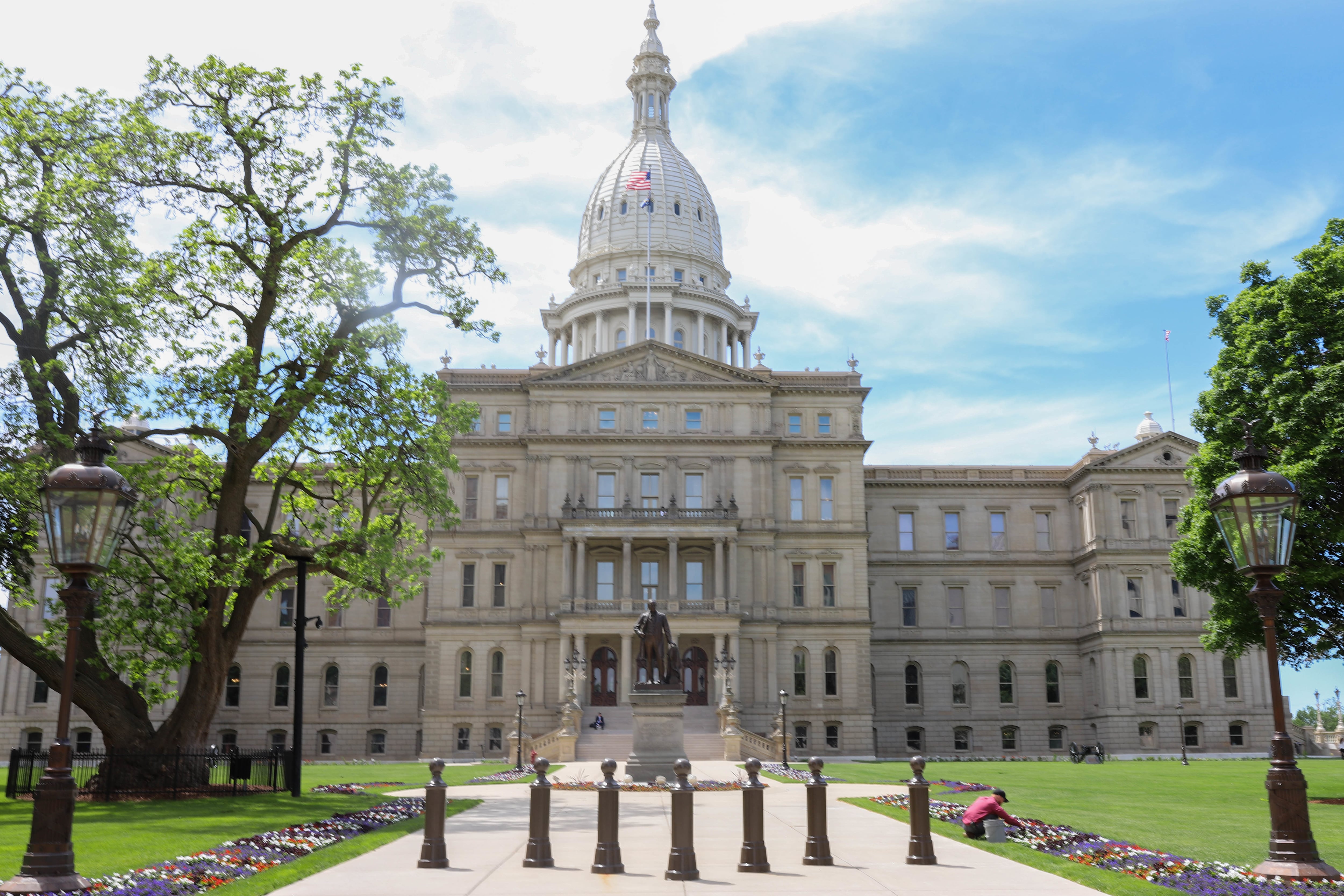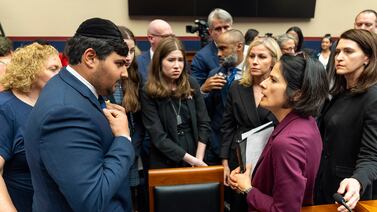Michigan lawmakers approved a $21.5 billion K-12 budget Wednesday that includes a significant funding increase for students considered to be at risk of not meeting educational goals.
It’s the first K-12 budget since Democrats took full control of the Legislature this year, and reflects an aggressive approach to addressing significant learning loss during the COVID-19 pandemic, particularly among the state’s most vulnerable students.
Under the budget, districts will receive more money in the upcoming school year for economically disadvantaged students, English language learners, and students who receive special education, according to a House Fiscal Agency analysis of Senate Bill 173.
The budget also funds free school meals for all students, expands eligibility for the state’s pre-K program, and increases per pupil funding for tutoring.
In separate higher education budgets that total $2.8 billion, the state’s public universities and community colleges will receive 5% increases in operating funds.
The House and Senate voted on the budgets along party lines late Wednesday as they worked to beat a July 1 budget deadline.
Gov. Gretchen Whitmer expressed satisfaction late in the afternoon, tweeting that the budget deal was “done.” After the Legislature’s vote, her office sent a press release in which State Superintendent Michael Rice said, “This is another outstanding budget, one that again works hard on funding adequacy and equity.”
Republican Sen. Thomas Albert, of Lowell, opposed the state education budget and said in a speech ahead of his no vote that both the school aid and general budget “simply spends too much money and it is not sustainable.”
But Republican Sen. Jon Bumstead, of North Muskegon, who served on the conference committee for the school budget, voted for the Democratic-led package.
He said ahead of his yes vote that “no budget is perfect,” but that the budget deal on schools reflects several Republican priorities.
“And just as Republicans did for many years in the majority, this budget makes a record investment in our schools,” he said.
Supporters say budget addresses ‘past wrongs’
More than half of Michigan students are considered economically disadvantaged. Advocates say the additional funding will help the state better support school districts and their students.
“This year’s school aid budget represents a giant step toward righting past wrongs and ensuring that all Michigan students have access to an excellent public school education,” said Alice Thompson, of the NAACP Detroit branch, who co-chairs a coalition that advocates for school funding reform.
“The unprecedented funding for students with the greatest needs, particularly those living in concentrated poverty, will be tremendously important to address the wide and unfair opportunity gaps that exist for students who are most underserved, especially Michigan’s Black and Latino students,” Thompson said.
The budget includes a 5% increase in the school “foundation allowance,” which is the base amount schools receive per student from the state. School districts will receive $9,608 for each student in the 2023-24 school year, an increase of $458.
The same increase will not be available to online schools, which will continue to receive $9,150 per student. Democrats and teachers unions have long argued that online schools require less money from the state because they don’t pay for buildings, transportation, sports, or other extracurriculars as traditional public schools do.
Dan Quisenberry, president of the Michigan Association of Public School Academies, a charter industry group, said online students deserve equal funding.
“Students in online schools include many of the most vulnerable students in the state, many of whom are minority students, LGBTQ students, children living in poverty, and students facing medical challenges,” Quisenberry said. “It would make no sense to fund students differently. That’s not who we are as a state. While we’ve made great progress, we’re not there yet. All kids deserve equal funding, and we will continue to advocate for that principle.”
Funding for ‘at risk’ students uses new calculation
The education budget sets aside $952 million in additional payments for districts with students deemed “at risk.” That’s an increase of more than $200 million over what was set aside in this year’s budget, which provided schools with 11.5% more funding for each eligible student.
Under the new budget, schools will receive at-risk student funding using an “opportunity index” that considers a district’s concentration of poverty, based on the number of economically disadvantaged students, which could mean an index boost of up to 15.3% for some schools.
Democratic lawmakers said they hope to one day raise at-risk student funding far higher.
“As we’ve seen from study after study from those in the field and education researchers, we need to get to higher levels of reimbursement for at-risk students,” Sen. Darrin Camilleri, D-Trenton, told Bridge Michigan. “And so we want to put a target in this budget to have at least 35% reimbursement be a goal for us in Michigan.”
Thompson and other education advocates in the Michigan Partnership for Equity and Opportunity coalition have urged policymakers to adopt a funding structure that aligns more closely with Massachusetts, which revamped its education funding in 2019 to provide more for low-income students.
Massachusetts and Michigan have similarly large achievement gaps between low-income and more affluent students on standardized tests. But low-income students in Massachusetts scored 11 points higher in fourth grade reading last year than Michigan’s low-income students on the National Assessment of Educational Progress. The gap was even wider among Black students, with those in Massachusetts testing 17 points higher.
Under the new budget, school districts will receive 100% of base funding for students who receive special education, rather than 75% provided under the current budget. There is also more funding for English language learners.
“The budget finalized today represents a solid investment in schools for the upcoming year but, more importantly, represents an investment in students for years to come,” said Bob McCann, executive director of the K-12 Alliance, which represents more than 100 Michigan school districts. “Funding for special education, at-risk students, and universal meal programs will give more students additional opportunities to succeed both in and out of the classroom.”
Longtime community activist Helen Moore, who has championed literacy programs in Detroit schools and currently volunteers tutoring third graders at Detroit Public Schools Community District’s Barton Elementary School, said it will take more money than the Legislature is able to give in the upcoming school year to reverse years of underfunding.
“How do you make up for all the money that was taken from children who have been neglected and treated like slaves?” she asked. “There is no answer for it. There’s not enough money to do it.”
The budget includes $94.4 million for DPSCD as a result of a literacy lawsuit settled in 2020. The settlement required Whitmer to propose the funding, but she needed legislative approval for the funds to be awarded.
The budget prohibits the district from using the funding to supplant existing literacy programs and requires the school district to create a task force and spend funds in a way that aligns with the literacy settlement.
Isabel Lohman is an education reporter for Bridge Michigan. You can reach her at ilohman@bridgemi.com
Hannah Dellinger is an education reporter for Chalkbeat Detroit. You can reach her at hdellinger@chalkbeat.org.








